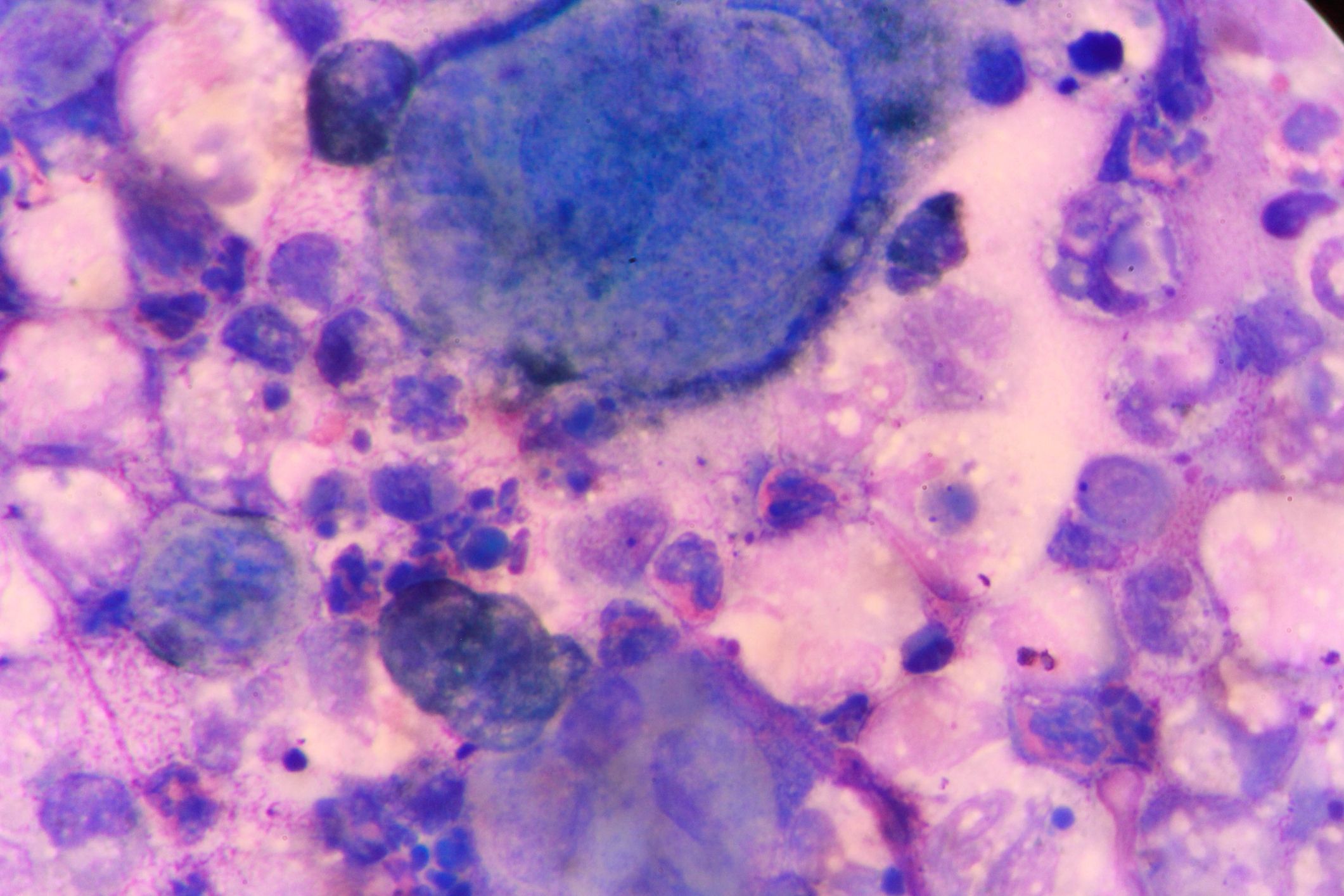
As scientists attempt to understand what causes Alzheimer's disease, risk factors from type 2 diabetes to obesity have emerged as culprits. The latest theory is the herpesvirus could play a role in its development.
In a study assessing the genetic data of Alzheimer's patients, scientists found the human herpesvirus was more abundant in the brains of those with the disease. Scientists wonder if the virus could change the function of the brain's genetic networks linked to the condition.
Humans are known to be infected by eight different types of herpesvirus, which can lie latent inside the cells of their host without becoming active. Three cause infections which trigger infections on the skin or mucus membranes, while the fourth has been linked to certain types of cancer. In the study, researchers honed in on HHV-6A and HHV-7, forms which are latent in almost 90 percent of children in North America have, and therefore don't cause any symptoms.
The researchers who compiled the study published in the journal Neuron initially wanted to investigate whether existing drugs could be used to treat Alzheimer's. But as tehey assessed data from three major brain banks, they noticed a pattern emerging.
Patients with Alzheimer's had more DNA and RNA of the human herpesvirus in their brains. What's more, viruses HHV-6A and HHV-7 were found most often in the brains of those with Alzheimer's but not other neurodegenerative disorders. The scientists believe the genes of the viruses may regulate and being regulated by human genes, which could in turn effect the genes associated with Alzheimer's.
This new research complements studies which indicate the beta-amyloid plaque which scientists believe build up in the brains of Alzheimer's patients could be a response to the body's defense against infections, the authors noted.
Joel Dudley, co-senior author and geneticist who is also a member of the ASU-Banner Neurodegenerative Disease Research Center, explained in a statement: "previous studies of viruses and Alzheimer's have always been very correlative. But we were able to do statistical causal inference testing and more sophisticated analysis, which allowed us to identify how the viruses are directly interacting with or coregulating or being regulated by Alzheimer's genes."
However, he stressed: "I don't think we can answer whether herpesviruses are a primary cause of Alzheimer's disease. But what's clear is that they're perturbing networks and participating in networks that directly accelerate the brain towards the Alzheimer's topology."
Sam Gandy, co-senior author and Alzheimer's disease specialist, said in a statement the findings could lead to new treatments options, but "they don't change anything that we know about the risk and susceptibility of Alzheimer's disease or our ability to treat it today."
Dr. David Reynolds, chief scientific officer of Alzheimer's Research U.K., told Newsweek: "Recent research suggests the number of dementia cases would fall by around a third if it were possible to eliminate health conditions and lifestyle factors that contribute to risk.
"Many of things that doctors tell us to do to control our risk of heart disease are also associated with a reduced risk of dementia. Not smoking, eating a healthy diet, staying mentally and physically active, only drinking within the recommended guidelines and keeping blood pressure and cholesterol in check, can all play a role in supporting brain health into old age."
Dr. James Pickett, Head of Research at the charity Alzheimer's Society, who was not involved in the study commented in a statement the relationship between viruses and Alzheimer's has been an area of interest for researchers for a while, but it remains unclear if higher levels of viruses cause dementia - or are caused by it.
"Similar to other studies in this area, while this is robust research, it could not prove that the viruses actually were responsible for the disease. It therefore doesn't change what we already know about the causes of dementia, doesn't mean that having cold sores put you at increased risk of getting it and people shouldn't be unduly worried."
Updated with comment from Dr. David Reynolds.
Uncommon Knowledge
Newsweek is committed to challenging conventional wisdom and finding connections in the search for common ground.
Newsweek is committed to challenging conventional wisdom and finding connections in the search for common ground.
About the writer
Kashmira Gander is Deputy Science Editor at Newsweek. Her interests include health, gender, LGBTQIA+ issues, human rights, subcultures, music, and lifestyle. Her ... Read more
To read how Newsweek uses AI as a newsroom tool, Click here.








